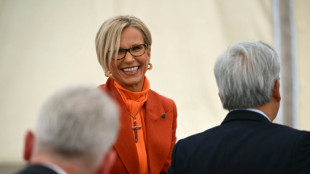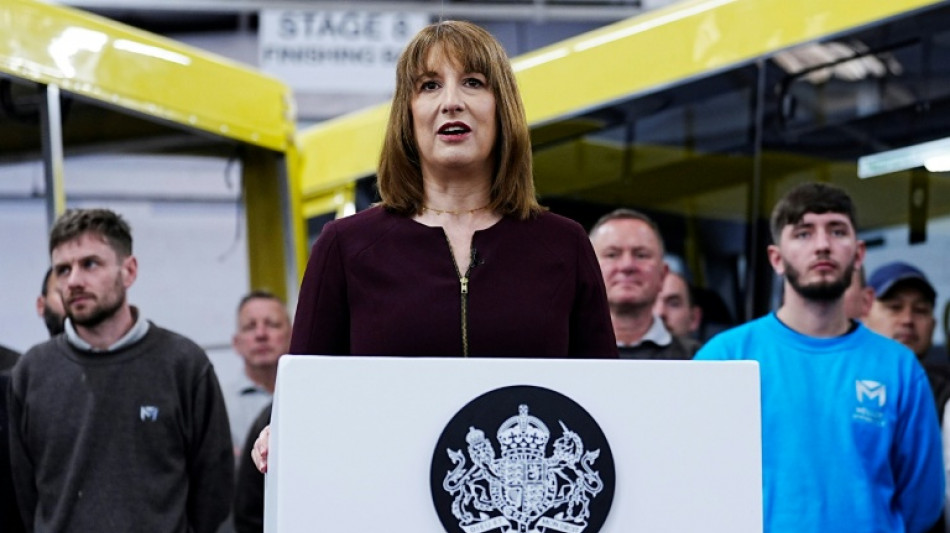
-
 Trump to push Netanyahu on Gaza peace plan at White House
Trump to push Netanyahu on Gaza peace plan at White House
-
Most markets track Wall St gains after US inflation data
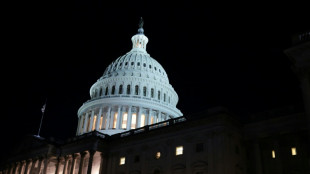
-
 Typhoon Bualoi batters Vietnam coast, killing 11
Typhoon Bualoi batters Vietnam coast, killing 11
-
Germany's Lufthansa to slash 4,000 jobs by 2030

-
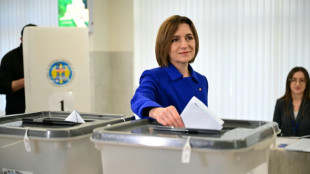 Moldova's pro-EU party wins key polls after Russian meddling claims
Moldova's pro-EU party wins key polls after Russian meddling claims
-
Mourinho Chelsea return prompts old memories, mixed feelings
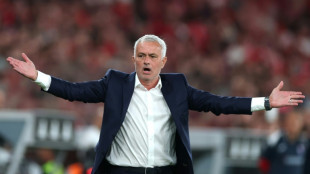
-
 'Predators': how reality TV explains Epstein obsession
'Predators': how reality TV explains Epstein obsession
-
Most Asian markets track Wall St higher after US inflation data
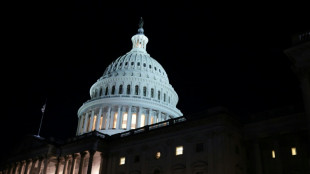
-
 India, Pakistan trade accusations after Asia Cup trophy debacle
India, Pakistan trade accusations after Asia Cup trophy debacle
-
Power-packed Australia favourites to rewrite World Cup history

-
 Latin artist Bad Bunny to headline Super Bowl half-time show
Latin artist Bad Bunny to headline Super Bowl half-time show
-
Air France, Airbus back on trial over doomed 2009 Rio flight

-
 India's divine designs meld with AI at Durga Puja festival
India's divine designs meld with AI at Durga Puja festival
-
Donald won't rule out Ryder Cup captain return after Europe win

-
 Who is Matthieu Blazy, the new man at Chanel?
Who is Matthieu Blazy, the new man at Chanel?
-
'New chapter': Paris Fashion Week to showcase industry makeover

-
 Bradley on US Ryder Cup loss: 'This is no one's fault but mine'
Bradley on US Ryder Cup loss: 'This is no one's fault but mine'
-
Four killed in attack on northern US Mormon church

-
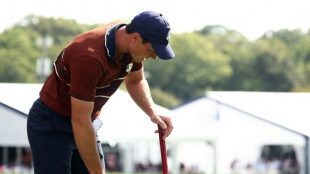 Bradley calls for Ryder Cup rule change for injuries
Bradley calls for Ryder Cup rule change for injuries
-
McIlroy slams 'unacceptable' Ryder Cup heckling

-
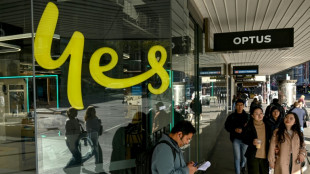 Embattled Australia telco giant hit by another major outage
Embattled Australia telco giant hit by another major outage
-
31 Concept Accelerates Next-Gen DPI Leadership With Strategic Acquisition of Xynthor AI

-
 Mahomes leads resurgent Chiefs in Ravens rout, Eagles stay unbeaten
Mahomes leads resurgent Chiefs in Ravens rout, Eagles stay unbeaten
-
Moldova's pro-EU party tops polls hit by Russian meddling claims
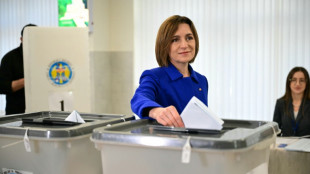
-
 Europe win emotional Ryder Cup triumph after US fightback
Europe win emotional Ryder Cup triumph after US fightback
-
Two dead after shooting, fire at US Mormon church

-
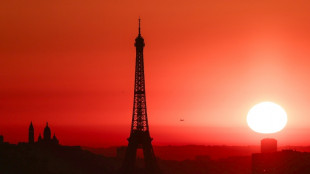 Europe must step up efforts to protect environment: report
Europe must step up efforts to protect environment: report
-
Eagles down Bucs to stay unbeaten, Bills march on

-
 Incumbent absent as Cameroon presidential campaigning picks up
Incumbent absent as Cameroon presidential campaigning picks up
-
AC Milan beat champions Napoli to make Serie A title statement

-
 Scores arrested on second day of Morocco protests: NGO
Scores arrested on second day of Morocco protests: NGO
-
'One Battle After Another' debuts top of N. America box office

-
 Two dead after US shooting, fire at Mormon church
Two dead after US shooting, fire at Mormon church
-
Mitchell open to coaching first Women's Lions in 2027

-
 Vagnoman sends Stuttgart past Cologne in Bundesliga
Vagnoman sends Stuttgart past Cologne in Bundesliga
-
Stars turn out for Armani's final collection in Milan

-
 Massive Russian drone and missile attack kills four in Kyiv
Massive Russian drone and missile attack kills four in Kyiv
-
Arsenal showed 'ambition' of title winners in Newcastle win: Arteta

-
 Free Picasso park to open in Paris in 2030
Free Picasso park to open in Paris in 2030
-
Barca beat Real Sociedad to top Liga as Yamal returns

-
 Arsenal strike late for 'beautiful' Newcastle win, close in on Liverpool
Arsenal strike late for 'beautiful' Newcastle win, close in on Liverpool
-
Barca beat Real Sociedad to go top as Yamal returns

-
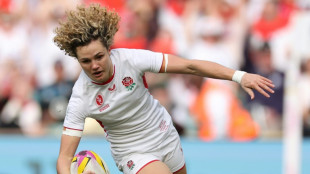 Kildunne says 'no reason' England can't win Rugby World Cup again
Kildunne says 'no reason' England can't win Rugby World Cup again
-
Arsenal strike late to beat Newcastle, close in on Liverpool

-
 Lyon win at Lille to stay level at top of Ligue 1 with PSG
Lyon win at Lille to stay level at top of Ligue 1 with PSG
-
Zurich votes to ban petrol leaf blowers
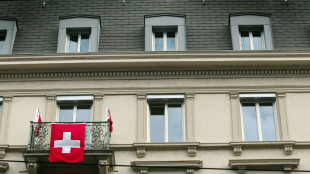
-
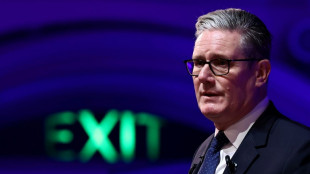 Starmer warns UK Labour in 'fight of our lives' as party meets
Starmer warns UK Labour in 'fight of our lives' as party meets
-
Namibia deploys 500 soldiers to fight Etosha fire

-
 Ryder Cup start host steps down after expletive-filled McIlroy chant
Ryder Cup start host steps down after expletive-filled McIlroy chant
-
Kuldeep helps India bowl out Pakistan for 146 in Asia Cup final


Defence or environment? UK faces spending choices
Torn between growing geopolitical tensions and constrained public finances, Britain's finance minister Rachel Reeves is set to unveil feared trade-offs in a government spending review on Wednesday.
Prime Minister Keir Starmer is boosting the defence budget, and reports point to National Health Service (NHS) being bolstered -- forcing other key ministries to tighten their belts.
"Sharp trade-offs are unavoidable," said the Institute for Fiscal Studies, a respected think tank, of the Labour government's spending plans through to 2029-2030.
Reeves, the chancellor of the exchequer, is to detail day-to-day spending plans in her review to parliament on Wednesday.
Ahead of the announcement, the government on Monday reversed a policy to scrap a winter heating benefit for millions of pensioners, following widespread criticism, including from within its own party.
Labour will raise the income threshold for receiving the subsidy, which "extends eligibility to the vast majority of pensioners", or nine million people, the Treasury said in a statement.
The policy to remove the allowance from millions of pensioners began this winter and followed the government's inaugural budget in October featuring tax rises and big spending announcements on infrastructure.
Since Labour won power last July, sweeping aside years of Conservative Party rule, it has unveiled also contested cuts to disability welfare payments, hoping to save more than £5 billion ($6.8 billion) by 2030.
Thousands of protestors gathered in central London on Saturday, many holding placards that read "tax the rich, stop the cuts -- welfare not warfare".
The government on Sunday announced £86 billion of investment in science and technology and defence by 2030.
Reeves hopes the spending will boost sluggish growth, which risks added pressure from the tariffs trade war unleashed by US President Donald Trump.
Reeves is set to announce a funding boost of up to £30 billion for the NHS, according to The Times newspaper.
Britain's media has in recent days reported on tough, last-minute discussions between the Treasury and the interior ministry, particularly regarding the police budget, as well as with the energy department amid fears for the UK's carbon-reduction commitments.
- Defence priority -
Reeves has amended her fiscal rules to allow the government more headroom for investment in the run-up to the spending review.
At the same time, she wishes to balance the books so that tax revenues match day-to-day spending, meaning the government borrows only to invest.
The chancellor has allowed the Treasury to borrow more, particularly for infrastructure projects across the vital housing and energy sectors.
This has handed her a windfall of £113 billion over five years.
"When it comes to capital spending, government investment is set to be sustained at historically high levels in the coming years," the IFS noted.
"If spent well, this should help contribute to growth and to better public services in years to come."
Citing Russia's invasion of Ukraine, London has announced it will increase its defence budget to 2.5 percent of UK gross domestic product by 2027 -- and up to 3.0 percent by 2034, helped by cutting international aid.
"While going for growth and fixing the NHS will still be central to the Spending Review, bolstering the nation's defence is now considered an urgent pressing need," said Susannah Streeter, head of money and markets at Hargreaves Lansdown.
While seeking to cut costs, it has been reported that the government may later this year announce plans to lift a cap on child benefits, also after a backlash over the policy from some of its party members.
"U-turns on benefit and welfare spending, increased pressure to ramp up defence spending and higher borrowing costs have left the chancellor, Rachel Reeves, in a sticky position", concluded Ruth Gregory, deputy chief UK economist at Capital Economics.
"If she wishes to avoid a political backlash and/or an adverse reaction in the financial markets, she probably has little choice but to raise taxes in the Autumn Budget."
The government has already hiked a business tax that entered into force in April.
C.Kreuzer--VB

